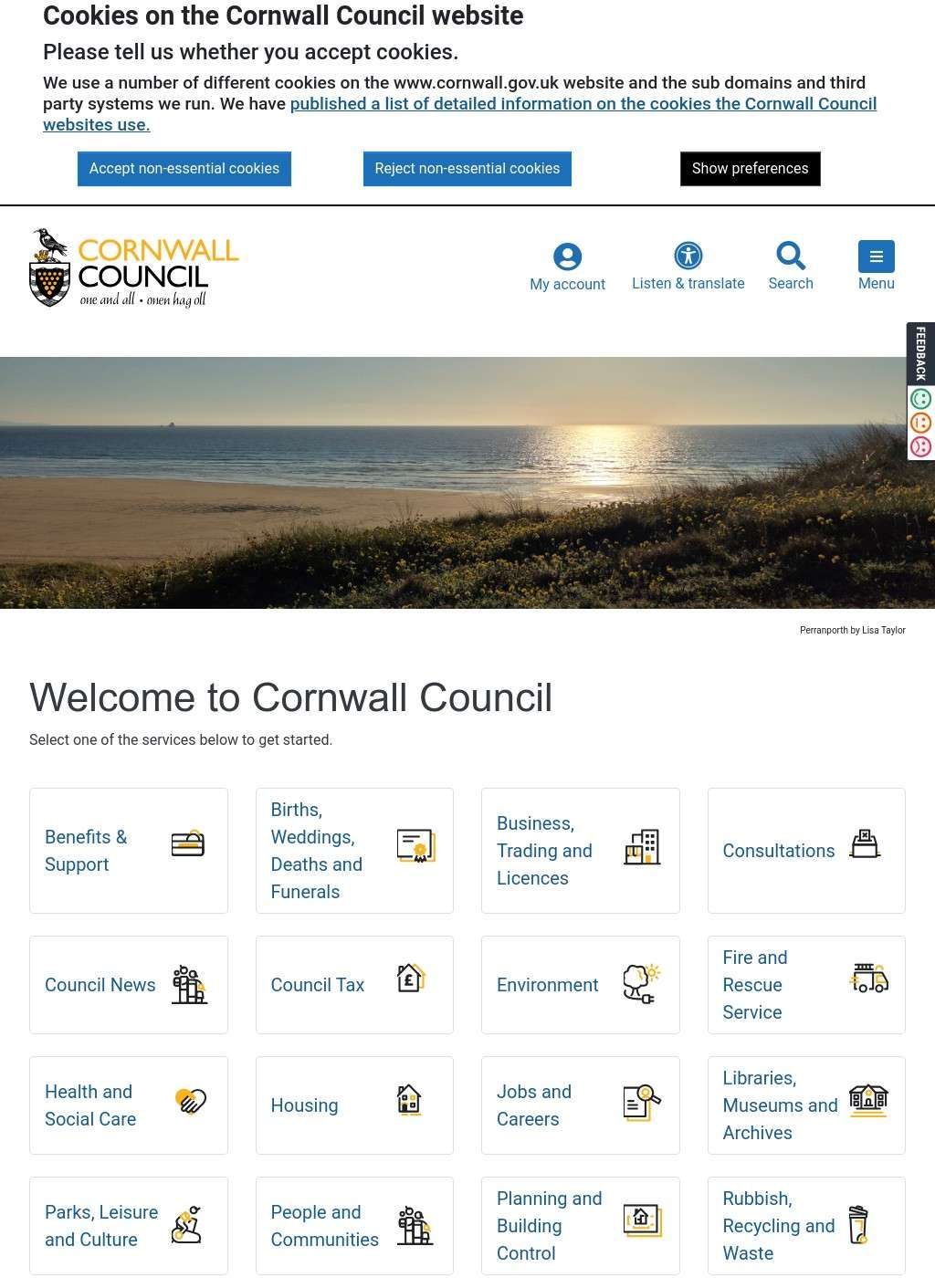Cornwall Council stands as the unitary authority governing the entirety of Cornwall and the Isles of Scilly, wielding considerable influence over the daily lives of more than half a million residents. The organization emerged in 2009 from the consolidation of six district councils, creating a streamlined governmental structure that now manages everything from bin collections to major infrastructure projects across this distinctive southwestern peninsula.
The council's digital presence reflects its comprehensive remit, offering residents a gateway to hundreds of services through its main website portal. Here, Cornish residents navigate council tax payments, planning applications, school admissions, and social care provisions with varying degrees of digital sophistication. The platform serves as both an information repository and a transactional hub, though like many local government websites, it occasionally struggles with the balance between comprehensiveness and user-friendliness.
At the heart of Cornwall Council's operations lies Lys Kernow in Truro, a purpose-built headquarters that replaced the older County Hall in 2019. This modern facility houses not just administrative offices but also serves as a public archive and civic center. The building itself represents a significant investment in Cornwall's future, consolidating previously scattered departments under one roof and improving operational efficiency. The council employs thousands of staff across numerous locations, from social workers visiting vulnerable families in remote villages to planning officers assessing developments in bustling tourist towns.
The authority's responsibilities span an impressive range. Education services oversee more than 240 schools, managing everything from school transport routes that wind through narrow Cornish lanes to supporting children with special educational needs. The planning department processes thousands of applications annually, balancing development pressures with the preservation of Cornwall's unique landscape and heritage. Meanwhile, adult social care teams work tirelessly to support an aging population, particularly challenging given Cornwall's demographic profile and the seasonal fluctuations brought by tourism.
Environmental services form another crucial pillar of the council's work. Waste management alone involves coordinating collections from remote coastal communities to inland market towns, managing recycling centers, and promoting sustainability initiatives. The council has set ambitious carbon neutrality targets, recognizing Cornwall's vulnerability to climate change with its extensive coastline and dependence on agriculture and tourism. Road maintenance presents perpetual challenges, with the county's network of narrow lanes and major routes requiring constant attention, especially after harsh winters that leave surfaces pocked with potholes.
The political landscape of Cornwall Council reflects the region's complex identity. Currently under no overall control following recent elections, the council operates through a cabinet system with Liberal Democrat leadership working alongside various political groupings. This arrangement requires delicate negotiation and compromise, particularly on contentious issues like housing development, second home ownership, and the preservation of the Cornish language and culture. The council has been notably progressive in recognizing Cornish national minority status, advocating for greater devolution of powers from Westminster.
Financial pressures dominate much of the council's strategic planning. Like local authorities across England, Cornwall Council faces the squeeze between rising demand for services and constrained budgets. The unique challenges of serving a largely rural population across a geographically large area compound these difficulties. Transport costs alone consume significant resources, whether for school buses navigating winding country roads or social workers visiting isolated farmsteads. The seasonal nature of Cornwall's economy, heavily reliant on tourism, creates additional budgetary complexities.
The council's online presence extends beyond its main website to include interactive mapping tools, dedicated portals for businesses, and increasingly sophisticated digital services. Residents can report potholes via smartphone apps, track planning applications in real-time, and access council meetings through livestreaming. This digital transformation accelerated during recent years, though challenges remain in ensuring all residents can access services online, particularly given rural connectivity issues and an older demographic less comfortable with technology.
Community engagement forms a vital part of Cornwall Council's approach to governance. The authority works closely with town and parish councils, recognizing these smaller bodies' importance in maintaining local democracy. Regular consultations on major decisions, from budget allocations to strategic planning policies, attempt to give residents a voice in shaping their communities' futures. The council also supports numerous community initiatives, from local food banks to environmental projects, often providing seed funding or administrative support to grassroots organizations.
Looking ahead, Cornwall Council faces both opportunities and challenges. The push for greater devolution could bring more decision-making powers to Cornwall, potentially including control over aspects of health services or economic development currently managed from London. Climate change adaptation requires significant investment in coastal defenses and infrastructure resilience. The housing crisis demands innovative solutions to provide affordable homes for local residents while managing the impact of second home ownership and short-term holiday lets.
For residents and businesses alike, Cornwall Council represents the most immediate face of government, responsible for services that directly impact daily life. From the moment a child enters nursery education to the support provided in old age, the council's influence permeates Cornish society. Its website serves as the primary interface for many of these interactions, a digital town hall open 24/7. While not without its critics – what local authority is? – Cornwall Council continues adapting to serve a county proud of its distinct identity while facing thoroughly modern challenges.
